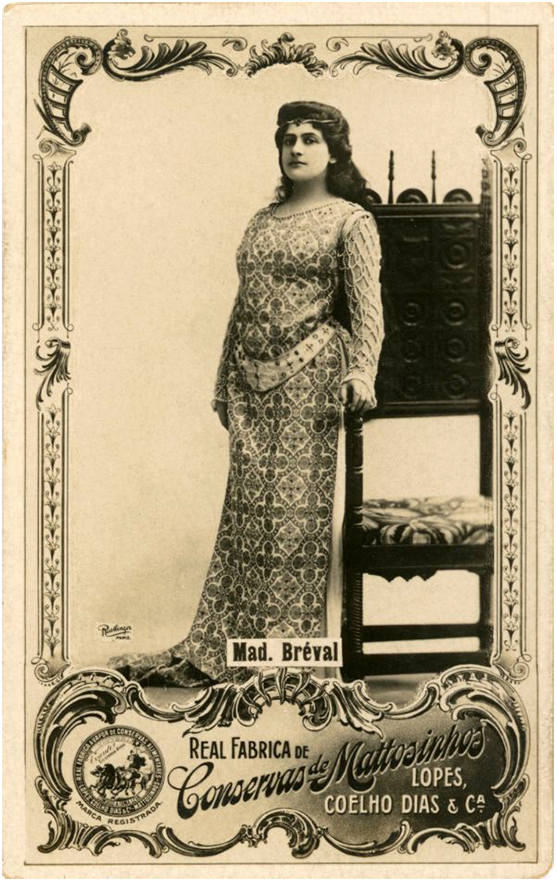Victorian Trade Cards da Real Fábrica de Conservas de Mattosinhos - Lucienne Bréval
Lopes, Coelho Dias & Cª Ltda
Matosinhos – Portugal
Size 5 cm x 8 cm
Bréval
Born with the name Bertha Agnès Lisette Schilling
Lucienne Bréval (4 November 1869 in Zürich – 15 August 1935 in Neuilly-sur-Seine) was a Swiss dramatic soprano who had a major international opera career from 1892-1918. Although she appeared throughout Europe and in the United States, Bréval spent most of her career performing with the Opéra National de Paris where she became a greatly admired interpreter of French grand opera roles and Wagner heroines. She also specialized in the works of Gluck and Rameau, becoming particularly associated with the title roles in Gluck’s Armide and Rameau’s Hippolyte et Aricie. A favorite of the composers of her day, such as Massenet and Dukas, Bréval sang in numerous world premières during her career.
https://en.wikipedia.org/wiki/Lucienne_Bréval

Victorian Trade Card
Victorian trade cards are an early form of collectible advertising. Trade cards originated in England in the 1700s with tradesmen advertising their wares. But the advent of lithography in the 1870s made it possible to mass-produce them in color, leading to a golden age from 1876 to the early 1900s when halftone printed newspaper and magazine ads became more economical. Trade cards typically had a picture on one side and an ad on the other. There were custom cards printed for specific products, and stock cards which could be used for any product. Trade cards were popular for medicines, sewing, and farm equipment, and a range of other products.

